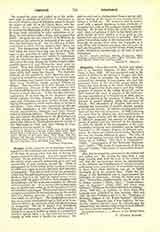

Despair (Latin desperare, to be hopeless) ethically regarded is the voluntary and complete abandonment of all hope of saving one’s soul and of having the means required for that end. It is not a passive state of mind: on the contrary it involves a positive act of the will by which a person deliberately gives over any expectation of ever reaching eternal life. There is presupposed an intervention of the intellect in virtue of which one comes to decide definitely that salvation is impossible. This last is motived by the persuasion either that the individual’s sins are too great to be forgiven or that it is too hard for human nature to cooperate with the grace of God or that Almighty God is unwilling to aid the weakness or pardon the offenses of his creatures, etc. It is obvious that a mere anxiety, no matter how acute, as to the hereafter is not to be identified with despair. This excessive fear is usually a negative condition of soul and adequately discernible from the positive elements which clearly mark the vice which we call despair. The pusillanimous person has not so much relinquished trust in God as he is unduly terrified at the spectacle of his own shortcomings or incapacity. The sin of despair may sometimes, although not necessarily, contain the added malice of heresy in so far as it implies an assent to a proposition which is against faith, e.g. that God has no mind to supply us with what is needful for salvation. Despair as such and as distinguished from a certain diffidence, sinking of the heart, or overweening dread is always a mortal sin. The reason is that it contravenes with a special directness certain attributes of Almighty God, such as His goodness, mercy, and faith-keeping. To be sure it is not the worst sin conceivable: that evil primacy is held by the direct and explicit hatred of God; neither is it as great as sins against faith like formal heresy or apostasy. Still its power for working harm in the human soul is fundamentally far greater than other sins inasmuch as it cuts off the way of escape and those who fall under its spell are frequently, as a matter of fact, found to surrender themselves unreservedly to all sorts of sinful indulgence.
JOSEPH F. DELANY

